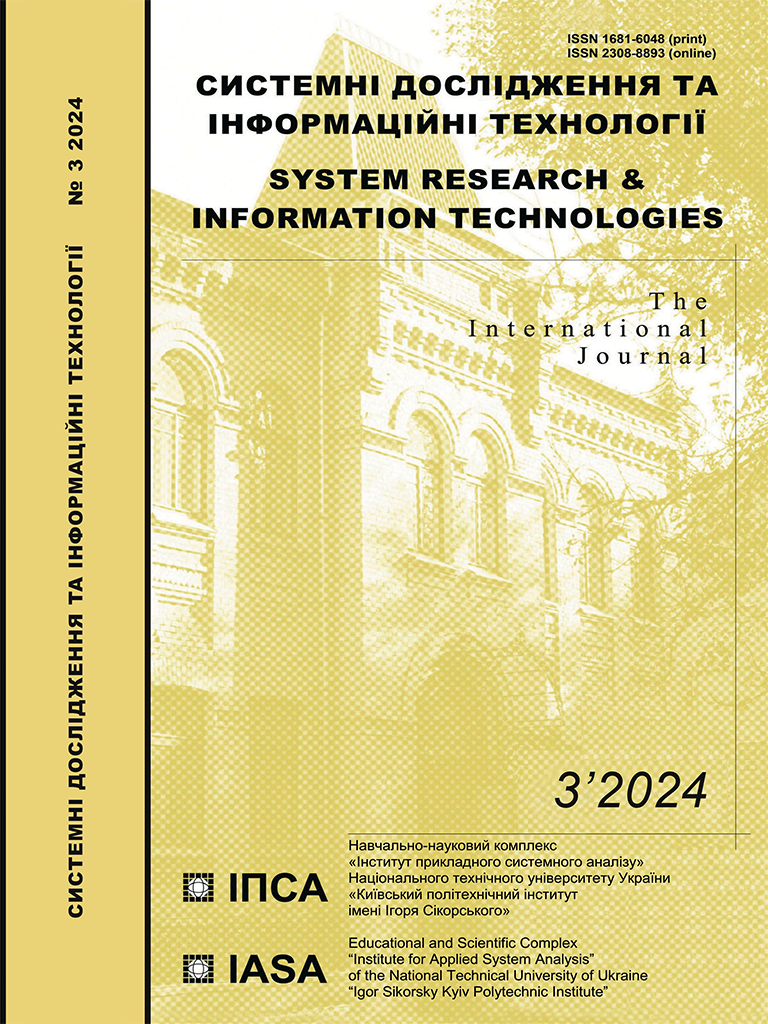The role of generative artificial intelligence (GAI) in scientific research
DOI:
https://doi.org/10.20535/SRIT.2308-8893.2024.3.08Keywords:
Generative Artificial Intelligence, hypothesis analysis and testing, searching scientific data sources, research planning, writing and editing scientific manuscripts, organizing and presenting resultsAbstract
The emergence and growing capabilities of Generative Artificial Intelligence (GAI) are profoundly transforming scientific research. Although AI extends human intelligence by automating certain tasks, it complements rather than replaces human creativity. This article discusses the implications of AI for the scientific process, including ethical considerations and the need for a balanced approach that combines the strengths of human and artificial intelligence in the process of discovering knowledge and solving complex problems. The discussion extends to the need for universities to adapt their curricula to prepare future researchers for the AI era, emphasizing scenario-based thinking and uncertainty management as important skills for the future.
References
Policy on the use of artificial intelligence for academic activities at Igor Sikorsky KPI. Available: https://osvita.kpi.ua/sites/default/files/downloads/polityka-vykorystannia-shtuchnogo-intelektu_2023.pdf
The policies for using artificial intelligence in education, teaching, and research at Kherson State University. Available: https://www.kspu.edu/FileDownload.ashx?id=00653012-555c-46b2-bb64-05ba9bf26773
The principles for using generative artificial intelligence at Zaporizhzhia Polytechnic National University. Available: https://zp.edu.ua/uploads/pubdocs/2023/Dekl_pro_pryn_vykor_heneratyvnoho_shtuchnoho_intelektu.pdf
M. Marienko, V. Kovalenko, “Artificial Intelligence and Open Science,” Physical and Mathematical Education, vol. 38, no. 1, pp. 48–53, 2023. doi: 10.31110/2413-1571-2023-038-1-007
“AI is transforming how science is done. Science education must reflect this change,” SCIENCE, vol. 382, issue 6677, 21 Dec 2023. doi: 10.1126/science.adm9788
Uttkarsha Bhosale, AI-Driven Hypotheses: Real world examples exploring the potential and challenges of AI-generated hypotheses in science. Available: https://www.enago.com/academy/ai-generated-research-hypothesis/
Tim Keary, Artificial Superintelligence (ASI). Available: https://www.techopedia.com/definition/31619/artificial-superintelligence-asi
Generative AI in Academic Research: Perspectives and Cultural Norms. Available: https://research-and-innovation.cornell.edu/generative-ai-in-academic-research/
Yueqiao Jin, Lixiang Yan, Vanessa Echeverria, Dragan Gašević, and Roberto Martinez-Maldonado, Generative AI in Higher Education: A Global Perspective of Institutional Adoption Policies and Guidelines, arXiv:2405.11800v1 [cs.CY], 20 May 2024. Available: https://arxiv.org/pdf/2405.11800
Semantic Scholar. Available: https://www.wikidata.uk-ua.nina.az/Semantic_Scholar.html
Enhance Your Research Paper Understanding with Explain Paper. Available: https://www.toolify.ai/ai-news/enhance-your-research-paper-understanding-with-explain-paper-1069228
IntelliConsult. Available: https://www.stork.ai/ru/ai-tools/intelliconsult
TopAI.tools. Available: https://topai.tools/t/academicgpt
Magic Slides. Available: https://www.popularaitools.ai/tools/magic-slides
Best Practices for Generative AI in Research. Available: https://www.aje.com/arc/best-practices-generative-ai-in-research/
F. Miao, W. Holmes, Guidance for generative AI in education and research. 2023. Accessed on: February 5, 2024. Available: https://unesdoc.unesco.org/ark:/48223/pf0000386693
L. Yan et al., “Practical and ethical challenges of large language models in education: A systematic scoping review,” British Journal of Educational Technology, 55, pp. 90–112, 2024.
B.L. Moorhouse, M.A. Yeo, and Y. Wan, “Generative AI tools and assessment: Guidelines of the world’s top-ranking universities,” Computers and Education Open, 5, 100151, 2023. Available: https://www.sciencedirect.com/science/article/pii/S2666557323000290
M. Sullivan, A. Kelly, and P. McLaughlan, “ChatGPT in higher education: considerations for academic integrity and student learning,” J. Appl. Learn. Teach., 6 (1), 2023. Available: https://doi.org/10.37074/jalt.2023.6.1.17
9 Best Free AI Detectors for Teachers in 2024. Available: https://www.classpoint.io/blog/best-free-ai-detectors-for-teachers

